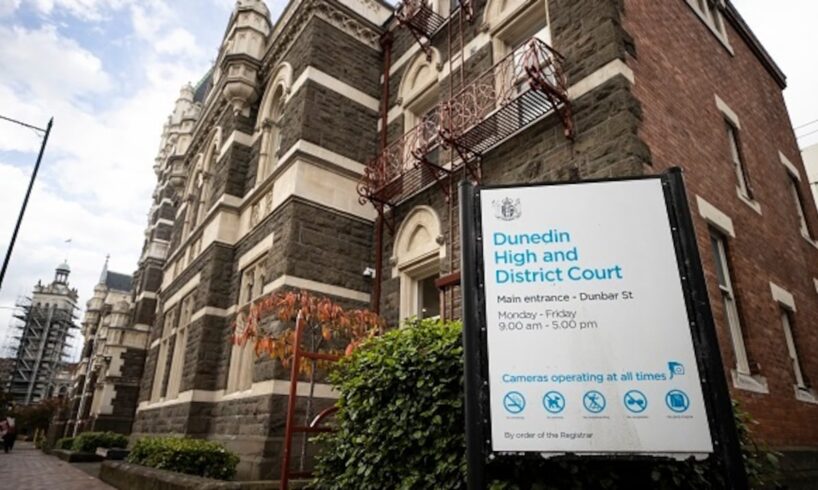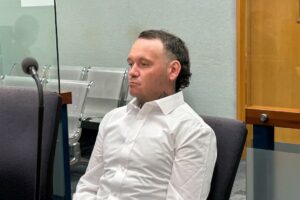
During the interview, the woman was adamant the child had not been intentionally injured, and expressed frustration in the doctors who had initially claimed the injuries were caused by trauma.
“It felt like we were constantly accused that we had hurt him, but we haven’t hurt him,” she said.
“I argued and argued and argued with them, ‘Can we do this testing, can we do that testing’ … It felt like they were just looking at one thing, they were just so narrow-minded by his broken bones that they wouldn’t look at anything else.”
She told the police interviewer she believed a possible explanation for the injuries was when she co-slept with the infant, a practice she had occasional doubts about.
She said the defendant was resolute he had never squeezed the infant and told her he was worried the injuries may have occurred while he was burping the child.
“I like to think that I know him well enough that if he had hurt him, he wouldn’t be able to live with himself. He’s not that type of person.”
The police interviewer put to the witness that the defendant may be keeping the truth of the events leading to the infant’s injuries from her, which she denied.
“I do not believe for one second that [the defendant] has hurt him at all.”
Under cross-examination by police prosecutor Robin Bates, the witness said in the days before the infant’s admission to hospital there were no visible changes.
“He cried regularly, he fed regularly, he woke regularly,” she said.
She said she had left the infant alone with the defendant at least five times before the discovery of the injuries, and that the defendant had called her to say he was unable to settle the child at least two to three times.
The day the Crown alleges the injuries occurred, the mother said she left home in the morning and returned about 8.30am after the defendant had phoned saying the infant would not settle.
Upon arriving home, she said the infant was crying in his bassinet and the defendant was nearby in the same room, “upset with himself” for being unable to settle him.
She said the infant’s behaviour was “unlike any other day” and she had slept that night in a chair while holding the child.
She said she realised something was not right the following weekend when she picked up the sleeping infant and heard a “popping” sound.
Under cross-examination by defence counsel Anne Stevens, KC, the witness said that when the infant was taken to the ED because of her concerns, paediatricians were quick to allege the injuries had been caused “by someone known” to the infant.
She said the accusations had been tough on her relationship with the defendant, and that they had supported each other.
The witness said she had never seen the defendant use too much force on children and that he was “extremely gentle”.
The court also heard a recorded phone call between the witness and the defendant, in which the latter expressed concern that police were listening in.
The witness told Bates that police had told her and the defendant it was likely their communications would be under surveillance.
She said she felt the police had been “grossly twisting everything out of context” and that the defendant was concerned about speaking openly over the phone.
On Monday, the Crown alleged the defendant applied a “crushing force” to the infant’s torso while the baby was in his care, resulting in 13 fractures.
The Crown contended the injuries were inflicted recklessly by “deliberately applied force”.
Defence counsel rejected that claim, suggesting other medical explanations, including vitamin D deficiency or a possible bone-density disorder.
During the trial, which is scheduled for up to three weeks before Judge David Robinson and a jury of 12, the Crown is set to call medical specialists, family members, neighbours and police officers.
The trial continues.
Ben Tomsett is a multimedia journalist based in Dunedin. He joined the Herald in 2023.





